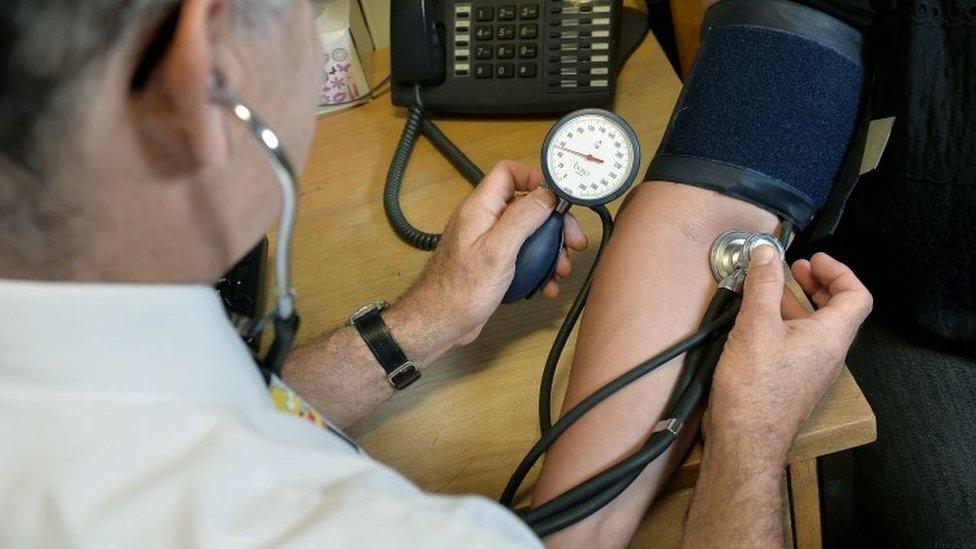'I was Scotland's first Asian paramedic'
- Published
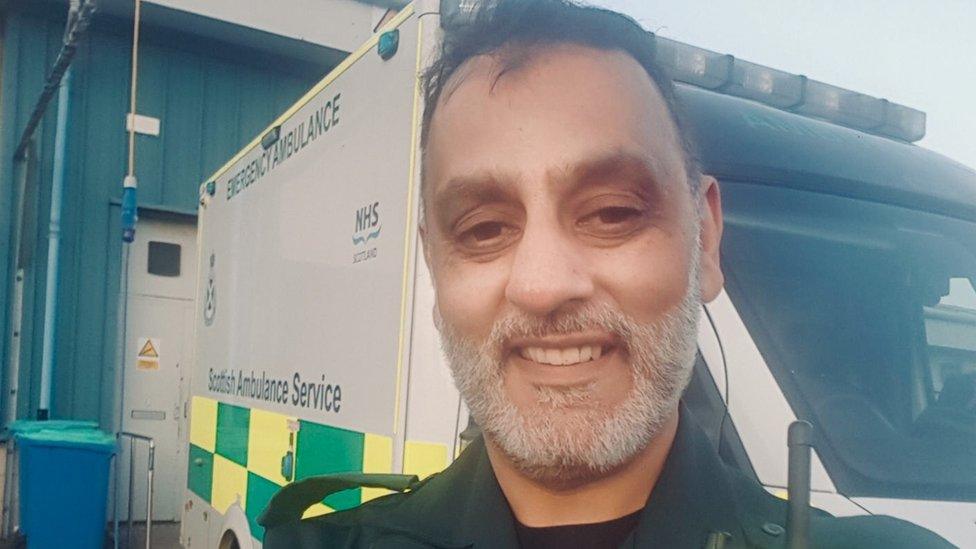
Araf is trying to encourage other people from ethnic minorities into the ambulance service
The man who became Scotland's first Asian paramedic admits he has been a role model...and a target.
In 22 years, Araf Saddiq has suffered verbal and physical racist abuse.
But he has also been a vital link between the NHS and the Asian community.
Araf is concerned there are still so few ethnic minority paramedics working in Scotland and thinks many in those communities are still fearful of contacting and using the health service.
Araf, 52, joined the Scottish Ambulance Service in 1996 after his mother died.
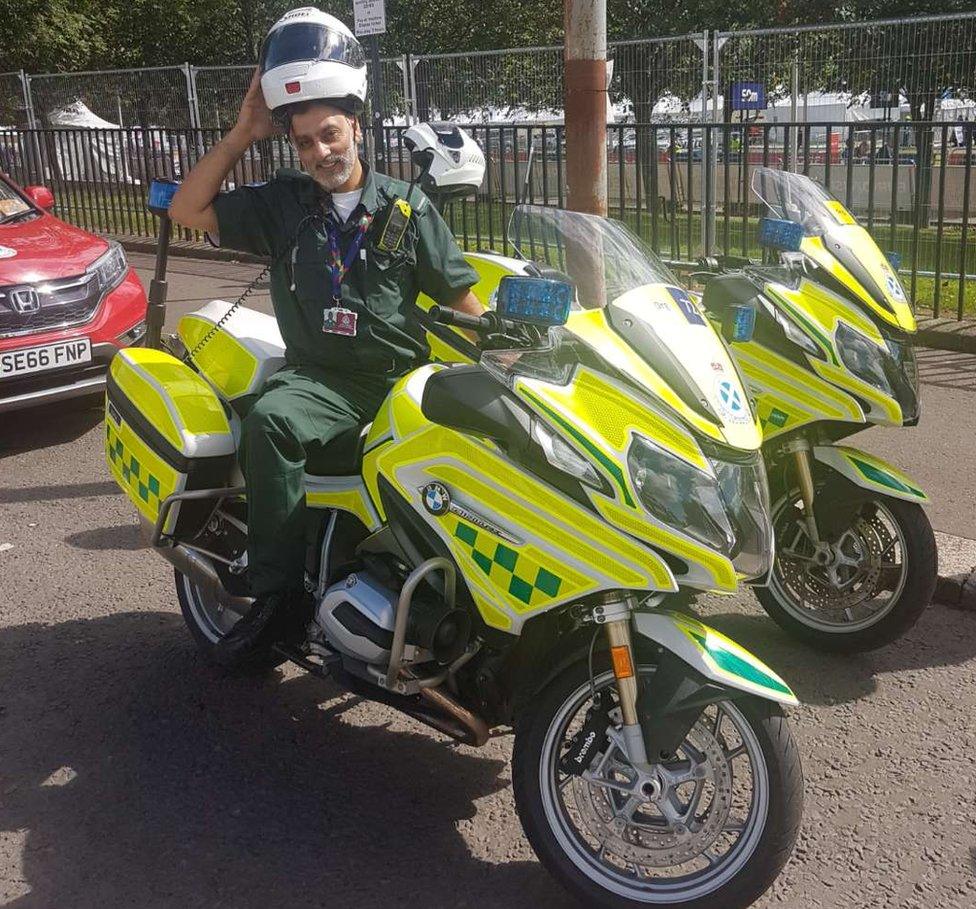
Araf has been a Paramedic for almost 20 years.
He told BBC Radio Scotland's Kaye Adams Programme: "My mother had a cardiac arrest and I'll never forget that night when the paramedics came out - how hard they tried to save her.
"My mother unfortunately passed away but the work the paramedics put in, the enthusiasm, the dedication they showed, that was the thing that sowed the seed for me to do something where I could make a difference in people's lives."
Two years later he applied to the ambulance service and joined as a technician before training as a paramedic.
In 1996, Araf was the first Asian paramedic. But in 2018, there are not many more.
Araf, from Bridgeton in Glasgow, said: "Employment in the Ambulance Service of ethnic minorities is quite shocking. It's only 0.2%. I can count on my one hand the people from ethnic minorities in the Scottish Ambulance Service.
"Parents push their children to be doctors and lawyers, it is a career they don't actually think of.
"The main thing is they get pressure from parents to go higher.
"But now there are people applying. I get calls from people asking what it takes. We have quite a few in the police but there has always been some kind of block with the ambulance service."

Araf has taught CPR to First Minister Nicola Sturgeon
Araf's career has seen him act as a role model, to encourage recruitment from different ethnic backgrounds and to deal with Asian families, often when there were language difficulties.
But despite his positive attitude, he has encountered some ugly scenes.
He said: "I had no direct racism from colleagues, but there were always comments made and undertones in mess rooms that I wasn't comfortable with.
"On the job, most people were just happy someone was coming to help them. I walked into houses with right-wing posters on the walls and I would expect things but they were just thankful you were helping a member of their family."
But he has been assaulted twice.
'He went for me'
"The worst one was directly because of racism," he said. "It was about ten years ago. We had helped a man and taken him to hospital. The patient just turned around and went for me, started swearing, calling me racist names. There was no question it was racism. The man felt strongly enough to attack me.
"I was off for six weeks, I hurt my shoulder, I had a knee injury. Mentally it affected me for a while and I needed to get counselling."
Araf said it is a rare rare occurrence now but it happens.
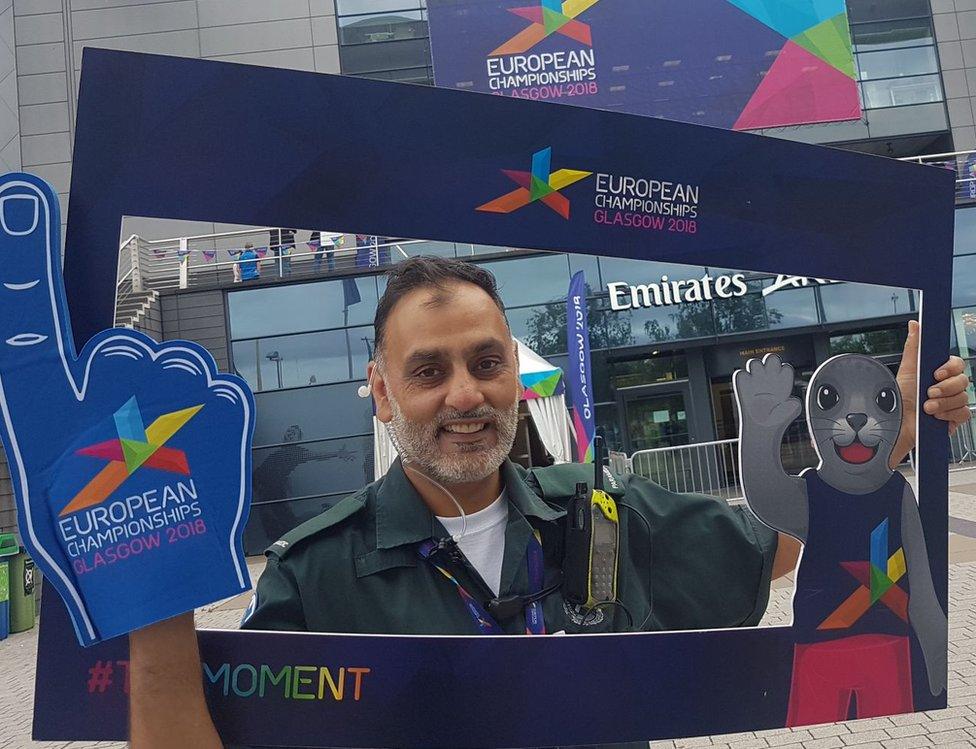
Araf loves his job and would love to encourage others to follow him into the career
"It's better now. People appreciate that we are there to help them. They don't generally care what colour or what religion you are.
"And I am hoping that with my actions I can change things. I want people to know we are all Scottish and we are there to help each other out."
As a Muslim, Araf also sees his challenge in helping Asian communities.
'A lot of mistrust'
He said: "A patient collapsed at home. A family member there didn't phone an ambulance. She phoned other family members. Half an hour later they arrived and then called an ambulance. But it could have been too late.
"Sometimes women are not given the responsibility to phone an ambulance. There is a lot of mistrust - barriers in people's minds. It holds them back - and I don't know where it stems from."
Araf takes his community work seriously. He is now campaigning to have defibrillators installed at mosques, temples and churches. He hopes to help raise money to place as many of the life-saving devices as he can into the heart of the communities.
He said: "I take my position as a role model very seriously. I want to use my voice to make a difference."
- Published11 September 2018
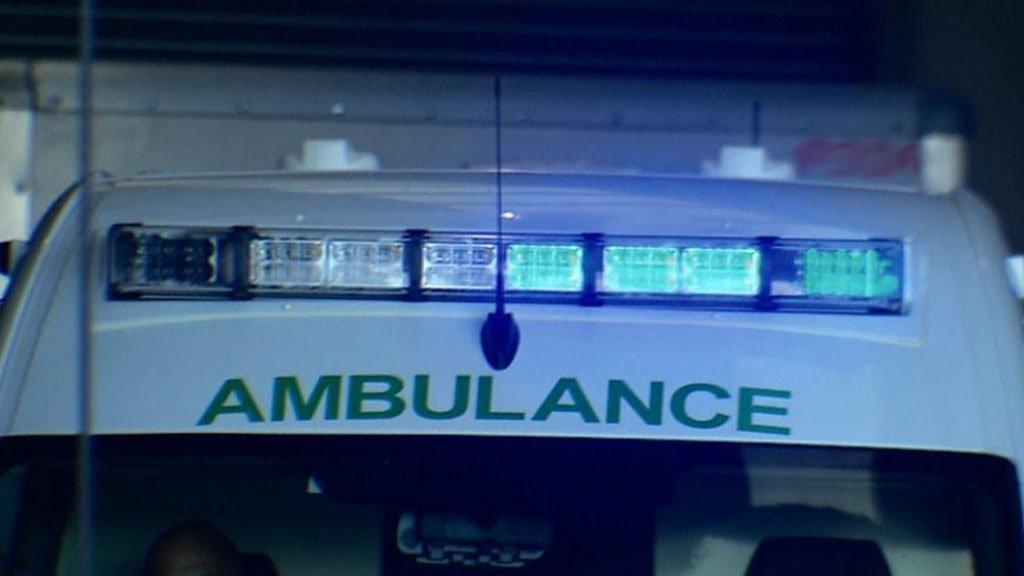
- Published23 July 2018
